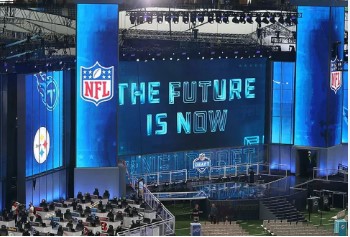Exploring the Role of Artificial Intelligence in the NFL Draft Process
In recent years, the NFL draft has evolved beyond simply evaluating players based on traditional scouting methods. Teams are increasingly turning to advanced analytics and technology to gain a competitive edge in identifying talent and making draft decisions. One emerging area of interest is the use of artificial intelligence (AI) in the draft process.
While there hasn’t been extensive reporting on the specific use of AI in the NFL draft, there are indications that teams are beginning to explore its potential applications. AI, with its ability to analyze vast amounts of data and identify patterns, could offer valuable insights into player performance, potential, and fit within a team’s system.
One potential application of AI in the draft process is player evaluation. By analyzing a wide range of data, including game footage, player statistics, combine results, and even social media activity, AI algorithms can generate comprehensive profiles of draft prospects. These profiles can provide teams with a deeper understanding of a player’s strengths, weaknesses, and overall potential, helping them make more informed draft decisions.
Furthermore, AI can assist teams in predicting player success at the professional level. By examining historical data and comparing prospects to past NFL players, AI algorithms can forecast how well a player is likely to perform in the league. This predictive analysis can help teams prioritize their draft picks and identify diamonds in the rough.
In addition to player evaluation, AI could also play a role in draft strategy and decision-making. By simulating different draft scenarios and analyzing the potential outcomes, AI algorithms can help teams identify the most advantageous trades, draft picks, and roster decisions. This strategic analysis could give teams a competitive advantage on draft day.
While AI has the potential to revolutionize the NFL draft process, its adoption may still be in the early stages. Teams may be hesitant to fully embrace AI due to concerns about reliability, bias, and the human element of scouting. However, as AI technology continues to advance and demonstrate its value in other industries, its role in the NFL draft process is likely to grow.
One team that has shown a commitment to leveraging technology in the draft process is the Green Bay Packers. General Manager Brian Gutekunst has praised the efforts of the team’s director of football technology, Mike Halbach, and his staff in utilizing advanced analytics and technology to stay at the forefront of player evaluation and draft strategy.
In conclusion, while the specific use of AI in the NFL draft may still be in its infancy, its potential to revolutionize player evaluation, draft strategy, and decision-making cannot be ignored. As teams continue to seek any advantage in the highly competitive world of professional football, AI is likely to play an increasingly prominent role in shaping the future of the NFL draft process.



